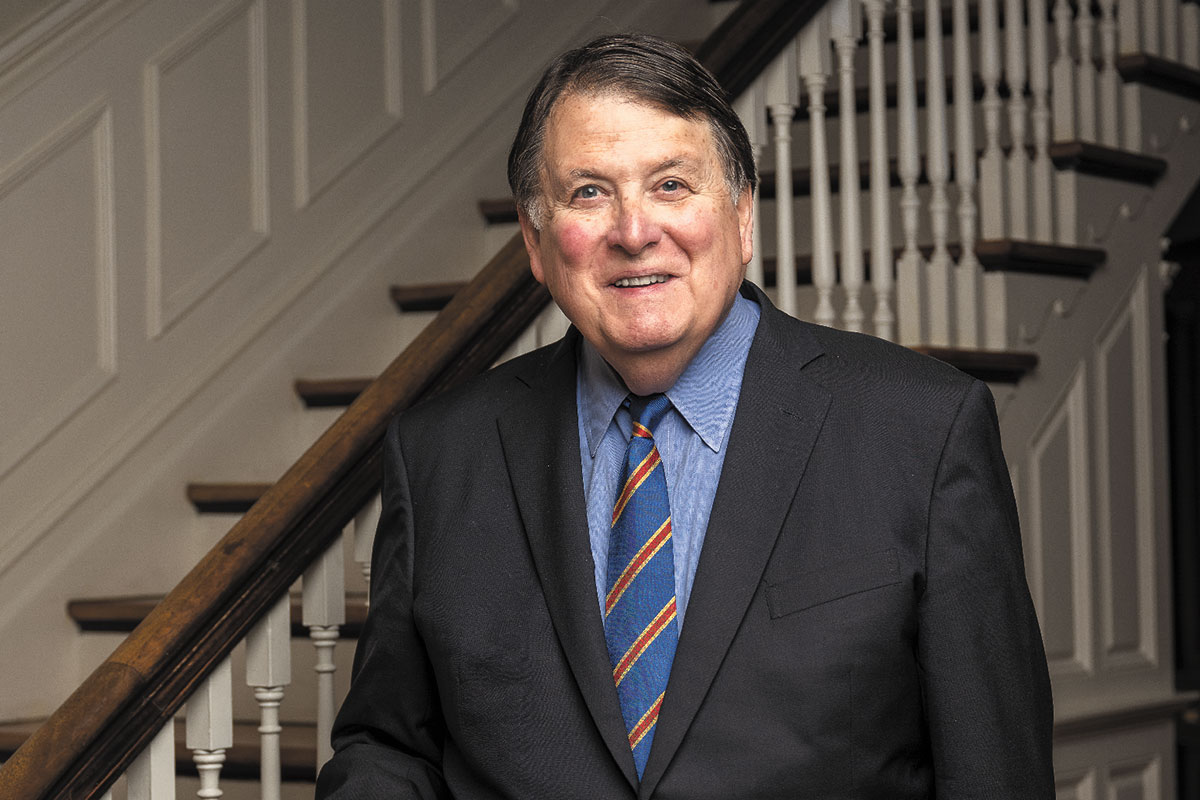Subscriber Benefit
As a subscriber you can listen to articles at work, in the car, or while you work out. Subscribe Now
Indiana Chief Justice, retired
Court of Appeals of Indiana, senior judge
Yale Law School, 1972
Why did you decide to enter the legal profession?
Though two of my ancestors had held office as a justice of the peace, we never had a lawyer in our family. My mother suggested to me that attending law school and becoming a lawyer equipped you for participating in a wide variety of future roles. It’s now clear that she was very right. It’s given me the chance to do lots of things, many of which, as Teddy Roosevelt said, have been “in the arena.”
If you hadn’t pursued a legal career, what would you be doing?
I wrote in my high school yearbook that my three top career choices were law, journalism and the foreign service. Those would still be my choices, and I’ve had the chance to engage in journalism by writing newspaper columns and touch base with other countries through international travel.
How do you spend your free time?
Traveling adventures with my wife and our daughter, volunteering in historic preservation, working on family history, watching “NCIS.”
What advice would you give attorneys who want to become judges?
Work hard at projects that improve our whole profession, and treat your fellow lawyers as collaborators.
What is something you wish people knew about lawyers?
We lawyers are often considered folks who spend our time battling each other, but a good majority of the time, lawyers approach their work by collaborating to find a just and legally correct answer to problems that vex our clients.
Do you have a secret talent?
Long ago, performing as a french fry man at McDonald’s.
Why did you decide to seek the bench, both trial and appellate?
The trial bench seemed like a valuable combination of intriguing lawyering challenges and an opportunity for public service. The appellate bench felt like a natural opportunity for advancement in my chosen profession and the chance to promote reform.
You were the state’s youngest chief justice and are the longest-serving chief. Aside from those, what do you hope your legacy is/will be?
Indiana is known in national circles for creating the Indiana Conference on Legal Education Opportunity, called ICLEO. In 1997, our General Assembly and the Supreme Court launched an effort to build the number of minority lawyers in the state by helping minority and other disadvantaged students with the chance to attend law school and become lawyers. In the intervening quarter century, ICLEO has graduated 700 students and made genuine change in the composition of our profession. Chief Justice Loretta Rush has uplifted this effort, which will benefit Indiana for decades to come.
Who is someone who has inspired you in your career?
One of Evansville’s finest counselors was a plaintiffs’ lawyer named Ted Lockyear. He did so much good for people who needed help, and he provided the community with leadership. He took a special interest in me, and I learned a lot by seeing the profession through his eyes. He kept urging me to work for reform and advancement. I particularly recall answering the phone one day at my desk in the Supreme Court and hearing Ted say, “You’re not writing enough dissents! We didn’t send you up there to do the same old things.” I replied, “Ted, I am winning in cases. Why would I vote with the losing side just so I could write a dissent?”
What makes a good lawyer/judge?
We’re at our best when we keep in mind that the work we do isn’t about us as lawyers and judges, but rather about clients, litigants and citizens. One thing I noticed about my mentor, Ted Lockyear, was how he spoke about cases. He handled a good many cases of statewide and national significance, but he never referred to them as “my emergency brake case,” but rather as “Mrs. Brown’s case.”
What has been the proudest moment of your career?
When I had been at the Supreme Court for half a dozen years, I was invited to speak to a group of Boy Scouts in Evansville and stay for a pitch-in dinner. Waiting for the meal, a gentleman approached to say how grateful he was for a case I had decided perhaps a decade earlier as a trial judge.
I had been asked to sit as special judge on a petition to terminate parental rights, something that wasn’t in my usual assignments. It involved two parents who were decent people but burdened to the point that they could not raise their children. The kids suffered serious health care problems and needed more attention to their education. They’d been in foster care for something like two years. Terminating the rights of those parents was genuinely painful, but I had decided that the children deserved a chance at good lives.
I asked the gentleman what had happened. It turned out that one of the Scouts, hanging out with his pals waiting for dinner, was the son, whom he and his wife had eventually adopted. The young man and his sister were healthy and active.
What’s the best advice you’ve ever received?
Never lie about anything. If you get asked a question and for some reason should not reveal the actual answer, just say so.•
Please enable JavaScript to view this content.
